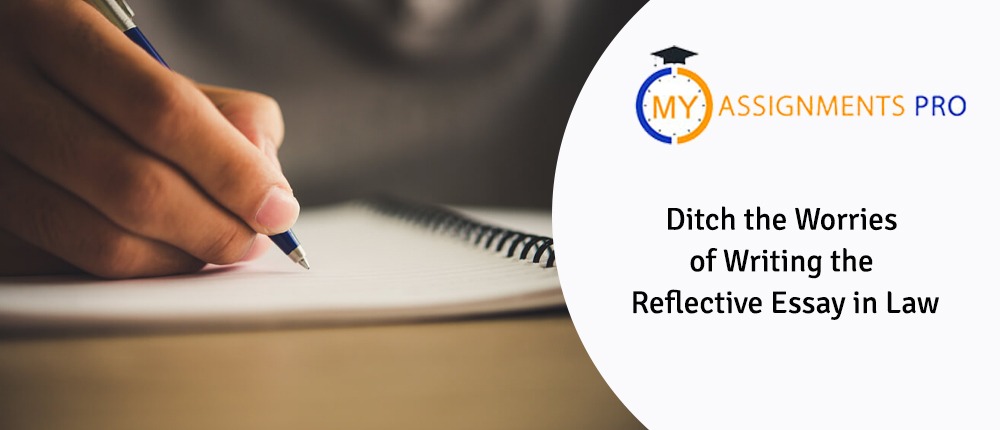
The first time you have to write a reflective essay as part of a grade, it can be hard to know how to start. IRAC doesn't apply anymore, and for the first time in law school, you are supposed to write in the first person. Plus, there always seems to be too much to talk about. If you're being graded on a reflective essay this semester, here are some ways to get started, unless you're getting help from My Assignments Pro with your law assignments help in Australia.
Why Do People Write Reflective Essays?
In law, the main goal of reflective law assignments is to get students to interact with the subject matter to show how their understanding of the subject has changed over time.
In law school, reflective essays are often used to grade students in classes that don't cover a lot of substantive law but do ask them to think about policies, underlying theories, or philosophies. Think about law reform, international and comparative law, and jurisprudence.
Even though reflective essays can cover a lot of ground and take many different shapes, it's essential to know how they are put together and what your teacher wants to see. Sometimes the assignment will ask you to answer a question or look at something. Make sure you know what you're supposed to think about because that will determine the scope of your writing.
How To Write A Reflective Essay About Law?

- The Subject
- The Look-Back
- What have you learned about yourself because of this?
- Has it made you a better person? How?
- Did it change your life for the better or, the worse?
- If you could change something, what would it be?
- What do you think made you choose the things you did? Do you think these choices were good?
- What do you think about the event as a whole? Was it an excellent way to learn something? What new skills or ways of looking at things did you know?
- Start with a strong paragraph. Your introduction needs to be attractive so that readers are interested right away.
- Give reasons, ideas, and examples to back up your main points in the body paragraphs. Each paragraph should focus on only one topic or experience and your thoughts.
- In the first sentence of your conclusion, give a brief overview of what you've said. Think about what you have learned and how it could help other people. Finish your essay by asking your readers a rhetorical question about what they would do in a similar situation. You could also tell them to think about something related on their own.

Author Bio


